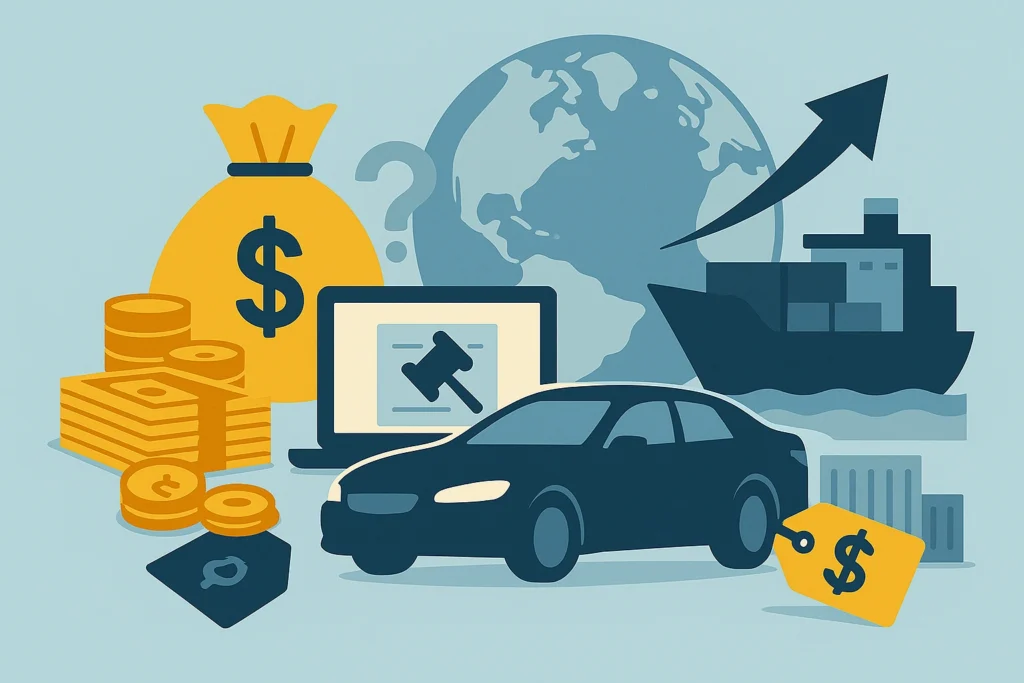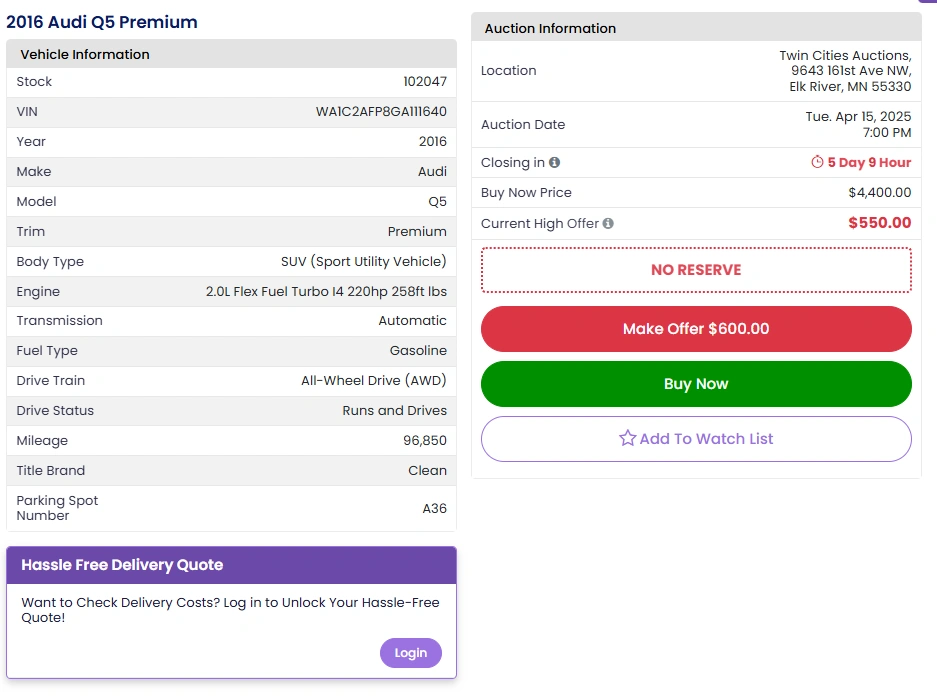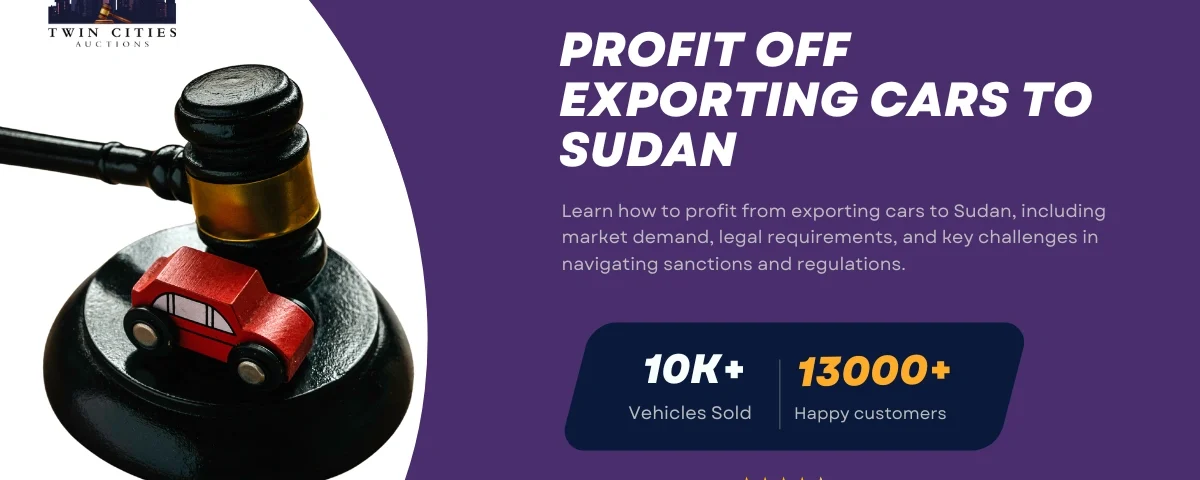Did you know Morocco imported an estimated 40 000–45 000 motor vehicles in 2023, valued at around 250 million USD and growing at 7 percent annually? U.S. exporters tapping this demand have boosted profit margins by up to 20 percent within six months.
This guide shows you how to navigate Morocco’s import regulations, calculate costs, and manage logistics for maximum returns.

Key Takeaways
- Morocco imported 40 000–45 000 vehicles (all types) in 2023
- Import costs add about 42 percent of vehicle value
- Profit equals landed cost plus your margin
- Main ports: Casablanca and Tanger Med
- Required documents: commercial invoice, bill of lading, import permit, certificate of conformity
- Best sourcing: U.S. auto auctions
Understanding the Moroccan Market
In 2023, Morocco imported approximately $2.5 billion worth of cars, positioning it as the 52nd largest car importer globally. The majority of these imports originated from countries like Turkey, Vietnam, and India, reflecting Morocco’s diverse sourcing strategy.
This robust import activity underscores the country’s growing demand for vehicles, driven by both consumer needs and commercial requirements.
Source: Office National des Statistiques
| Metric | Figure |
| Vehicles Imported | 40 000–45 000 units |
| Estimated Market Value | ~250 million USD |
| Year‑over‑Year Growth | ~7 percent |
Source: Office National des Statistiques
Regulations and Compliance
Morocco enforces strict regulations on vehicle imports to ensure safety and environmental standards. Notably, only diplomats are permitted to import passenger cars older than five years. All other importers must adhere to the five-year age limit.
Additionally, vehicles must comply with Moroccan technical and safety standards, necessitating a Certificate of Conformity. An import permit from the Ministry of Industry and Trade is also mandatory for all vehicle imports.
| Document | Purpose | Required For |
| Commercial Invoice | Declares sale value | All imports |
| Bill of Lading | Proof of maritime shipment | Sea‑borne imports |
| Import Permit | Government authorization | All vehicle imports |
| Certificate of Conformity | Verifies safety and emissions compliance | All imports |
Source: Moroccan Customs Directorate
Building Your Landed Cost and Profit Model
When importing vehicles into Morocco, it’s crucial to account for various taxes and fees to accurately determine the total landed cost. Imported goods are subject to a Value Added Tax (VAT) of up to 20%, depending on the product type.
Additionally, a parafiscal tax of 0.25% is levied on the value of imported goods. These charges, combined with import duties, can significantly impact the final cost and should be factored into pricing strategies to maintain profitability.
| Cost Item | Rate | Calculation Example (USD) |
| CIF Cost | — | 10 000 |
| Import Duty | 30 percent | 3 000 |
| Value Added Tax | 10 percent | (10 000 + 3 000) × 0.10 = 1 300 |
| Miscellaneous Fees | 2 percent | 10 000 × 0.02 = 200 |
| Total Landed | — | 14 500 |
Source: Moroccan Customs Directorate
Add your target profit margin (e.g., 20 percent) above the landed cost.
Logistics and Shipping Routes
Morocco’s strategic location and port infrastructure facilitate efficient vehicle imports. The country boasts several key ports, including Casablanca and Tanger Med, which serve as primary entry points for imported vehicles.
Shipping routes from the U.S. East Coast to Casablanca typically take 18–22 days, while routes from the U.S. Gulf Coast to Tanger Med range from 15–19 days. These transit times are essential for planning inventory and delivery schedules.
| Route | Transit Time | Notes |
| U.S. East Coast → Casablanca | 18–22 days | Direct container service |
| U.S. Gulf Coast → Tanger Med | 15–19 days | Fast‑track Mediterranean link |
| U.S. West Coast → Casablanca | 25–30 days | Panama Canal then Med Sea transit |
Source: Maersk
Financing and Payment Security
To mitigate financial risks associated with international trade, importers often utilize various payment methods. Letters of Credit are commonly used for transactions involving new partners or large shipments, offering a secure payment mechanism.
Open Accounts are suitable for established, trusted buyers, while Escrow services provide a balanced approach by ensuring delivery before payment release.
Additionally, forward contracts with major Moroccan banks can help manage currency fluctuations between the USD and MAD.
| Method | Risk Level | Best Use |
| Letter of Credit | Low | New partners; large shipments |
| Open Account | High | Established, trusted buyers |
| Escrow | Medium | Ensures delivery before payment release |
Source: U.S. Export‑Import Bank
Mitigate USD/MAD fluctuations with forward contracts at major Moroccan banks.
Common Pitfalls to Avoid
- Underestimating combined duty and VAT erodes margins
- Missing import permit or certificate of conformity delays clearance
- Overlooking age‑limit enforcement leads to rejections
Use the Moroccan Customs pre‑shipment checklist to confirm documentation.
Source: Moroccan Customs Directorate
Why Auctions Are a Smart Choice for Car Purchases
Auctions can be an excellent source for late-model vehicles with clear chains of title and affordable pricing. Twin Cities Auctions, based in Minnesota, is one such reputable auction house that offers a wide range of vehicles at competitive prices.
Key Benefits of Buying from Auctions:
- Wide Selection: Auctions like Twin Cities Auctions offer a variety of vehicles, from low-budget cars to high-end models.

- Competitive Pricing: Auctions often offer vehicles at prices below retail value, enabling dealers to maximize their profit margins.

- Transparency: Auctions provide full vehicle history reports, so you know exactly what you’re buying.

- Convenient Bidding: Many auctions offer online bidding for your convenience, making it easier to source vehicles without being physically present.
Twin Cities Auctions: A Smart Vehicle Sourcing Choice
For those in the automotive industry, Twin Cities Auctions offers an excellent platform for sourcing quality vehicles at competitive prices.
Whether you are just starting or expanding your business, this auction house provides transparency, competitive pricing, and a broad selection.
| Feature | Description |
| Inventory Variety | Wide range of cars, trucks, and SUVs available |
| Competitive Pricing | Below-market pricing allows for higher profit margins |
| Vehicle History Reports | Detailed history reports for every vehicle |
| Online Bidding | Convenient online bidding options for dealers |
| Financing Options | Financing available to help with inventory purchases |
Conclusion
By adhering to Morocco’s eight year age limit, securing both the import permit and certificate of conformity, and building an accurate landed cost that factors in a 30 percent duty, 10 percent VAT, and standard fees, you’ll protect your margins and avoid delays.
Routing shipments through Casablanca or Tanger Med ensures efficient delivery, while sourcing late model vehicles from U S auctions such as Twin Cities Auctions delivers competitive pricing, clean titles, and reliable condition reports.
Pair disciplined compliance with the right financing terms and currency forward contracts, and you’ll be well positioned to capture up to 20 percent profit in one of Africa’s fastest growing auto markets.
Twin Cities Auctions: No Dealer License? No Problem!
Are you interested in buying or selling a car but worried about the complexities of needing a dealer license? Worry no more! At Twin Cities Auctions, we’ve removed the barriers, making our auctions open to everyone.
Whether you’re a seasoned buyer or a first-time seller, our platform offers a welcoming environment where you can participate freely. Experience the ease and excitement of our next auction and discover just how simple and rewarding a car auction can be!
Looking for more options? Explore our comprehensive list of all available car auctions across the United States. Your next deal might be just a click away!
FAQ
What are Morocco’s auto import duties?
Import duty is 30 percent of CIF value plus VAT of 10 percent.
Can I export used cars to Morocco?
Yes—vehicles must be no older than eight years and hold an official certificate of conformity.
What age restrictions apply?
Imports must be manufactured within the last eight years.
How long does customs clearance take?
Typically five to seven business days with complete documentation.
Are emissions tests mandatory?
Yes—certificate of conformity must verify compliance with national emissions standards.


